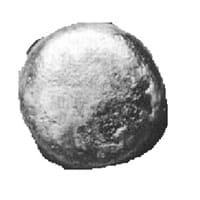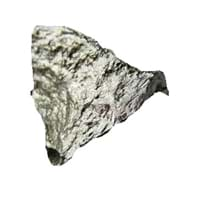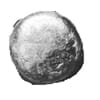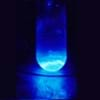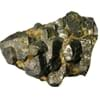Plutonium vs Manganese
Periodic Table
Symbol
Pu
Mn
Group Number
0
18
7
11
Period Number
7
4
Block
f block
d block
Element Family
Actinide
Transition Metal
CAS Number
7440075
99+
7439965
99+
Space Group Name
P121/m1
I_ 43m
Space Group Number
11.00
13
217.00
4
Facts
Interesting Facts
- Plutonium metal if obtain from ores of uranium metal.
- Plutonium metal is very sensitive to the change in atmospheric conditions like temperature and pressure.
- Manganese is an essential trace element in all forms of life.
- Manganese metal oxidizes very easily, but it does not fuse that easily.
Sources
Mining, Ores of metals
Found in Minerals, Mining, Ores of Minerals
History
Who Discovered
Glenn T. Seaborg, Arthur Wahl, Joseph W. Kennedy, Edwin McMillan
Johann Gottlieb Gahn
Discovery
In Between 1940 1941
In 1774
Abundance
Abundance In Universe
Not Available
8 * 10-4 %
8
Abundance In Sun
~-9999 %
~0.001 %
8
Abundance In Meteorites
Not Available
0.27 %
8
Abundance In Earth's Crust
Not Available
0.11 %
8
Abundance In Oceans
Not Available
0.00 %
13
Abundance In Humans
Not Available
0.00 %
13
Uses
Uses & Benefits
- Plutonium was used in atomic bombs and still it is being used in various weapons and Ammunition industry.
- It is also used in nuclear power plant as source of energy for space missions.
- This metal is very brittle hence it mostly not used as a pure metal, but its alloys are very useful
- Its alloy Manganese steel is extremely strong and used in railway tracks, safes, prison bars and riffle barrels.
Industrial Uses
Aerospace Industry, Ammunition Industry
Automobile Industry, Electrical Industry, Electronic Industry
Medical Uses
NA
NA
Other Uses
Alloys
Alloys
Biological Properties
Toxicity
Toxic
Toxic
Present in Human Body
No
Yes
In Blood
0.00 Blood/mg dm-3
37
0.08 Blood/mg dm-3
14
In Bone
0.00 p.p.m.
36
100.00 p.p.m.
8
Physical Properties
Melting Point
639.50 °C
99+
1,245.00 °C
37
Boiling Point
3,235.00 °C
24
1,962.00 °C
99+
Appearance
Physical State
Solid
Solid
Color
Silvery White
Silver
Luster
NA
Metallic
Hardness
Mohs Hardness
Not Available
6.00
6
Brinell Hardness
Not Available
196.00 MPa
99+
Speed of Sound
2,260.00 m/s
99+
5,150.00 m/s
7
Optical Properties
Allotropes
No
No
α Allotropes
Not Available
Not Available
β Allotropes
Not Available
Not Available
γ Allotropes
Not Available
Not Available
Chemical Properties
Chemical Formula
Pu
Mn
Isotopes
Known Isotopes
20
19
21
18
Electronegativity
Pauling Electronegativity
1.28
33
1.55
25
Sanderson Electronegativity
Not Available
2.20
7
Allred Rochow Electronegativity
1.22
26
1.60
9
Allen Electronegativity
Not Available
1.75
15
Electropositivity
Pauling Electropositivity
2.72
21
2.45
29
Ionization Energies
1st Energy Level
584.70 kJ/mol
99+
717.30 kJ/mol
30
2nd Energy Level
1,128.00 kJ/mol
99+
1,509.00 kJ/mol
39
3rd Energy Level
2,084.00 kJ/mol
99+
3,248.00 kJ/mol
21
4th Energy Level
3,338.00 kJ/mol
99+
4,940.00 kJ/mol
20
5th Energy Level
Not Available
6,990.00 kJ/mol
17
6th Energy Level
Not Available
9,220.00 kJ/mol
16
7th Energy level
Not Available
11,500.00 kJ/mol
16
8th Energy Level
Not Available
18,770.00 kJ/mol
5
9th Energy Level
Not Available
21,400.00 kJ/mol
6
10th Energy Level
Not Available
23,960.00 kJ/mol
9
11th Energy Level
Not Available
27,590.00 kJ/mol
10
12th Energy Level
Not Available
30,330.00 kJ/mol
10
13th Energy Level
Not Available
33,150.00 kJ/mol
11
14th Energy Level
Not Available
38,880.00 kJ/mol
10
15th Energy Level
Not Available
41,987.00 kJ/mol
13
16th Energy Level
Not Available
109,480.00 kJ/mol
1
17th Energy Level
Not Available
118,100.00 kJ/mol
2
18th Energy Level
Not Available
127,100.00 kJ/mol
3
19th Energy Level
Not Available
138,600.00 kJ/mol
4
20th Energy Level
Not Available
148,500.00 kJ/mol
6
21st Energy Level
Not Available
158,600.00 kJ/mol
6
22nd Energy Level
Not Available
172,500.00 kJ/mol
5
23rd Energy Level
Not Available
181,380.00 kJ/mol
5
Electrochemical Equivalent
2.28 g/amp-hr
22
0.29 g/amp-hr
99+
Electron Work Function
Not Available
4.10 eV
25
Other Chemical Properties
Corrosion, Ionization, Radioactive Isotopes, Radioactivity
Ionization, Radioactive Isotopes
Atomic Properties
Atomic Number
94
24
25
99+
Electron Configuration
[Rn] 5f6 7s2
[Ar] 3d5 4s2
Crystal Structure
Monoclinic (MON)
Body Centered Cubic (BCC)
Crystal Lattice
MON-Crystal-Structure-of-Plutonium.jpg#100
BCC-Crystal-Structure-.jpg#100
Atom
Number of Protons
94
24
25
99+
Number of Neutrons
150
11
30
99+
Number of Electrons
94
24
25
99+
Radius of an Atom
Atomic Radius
159.00 pm
28
127.00 pm
99+
Covalent Radius
187.00 pm
20
139.00 pm
99+
Van der Waals Radius
200.00 pm
28
200.00 pm
28
Atomic Weight
244.00 amu
19
54.94 amu
99+
Atomic Volume
12.32 cm3/mol
99+
1.39 cm3/mol
99+
Adjacent Atomic Numbers
Valence Electron Potential
64.90 (-eV)
21
220.00 (-eV)
2
Lattice Constant
618.30 pm
4
891.25 pm
1
Lattice Angles
NA
π/2, π/2, π/2
Lattice C/A Ratio
Not Available
Not Available
Mechanical Properties
Density
Density At Room Temperature
19.82 g/cm3
13
7.21 g/cm3
99+
Density When Liquid (at m.p.)
16.63 g/cm3
8
5.95 g/cm3
99+
Tensile Strength
Not Available
Not Available
Viscosity
Not Available
Not Available
Vapor Pressure
Vapor Pressure at 1000 K
0.00 (Pa)
26
0.00 (Pa)
12
Vapor Pressure at 2000 K
2.20 (Pa)
12
Not Available
Elasticity properties
Shear Modulus
43.00 GPa
18
Not Available
Bulk Modulus
Not Available
120.00 GPa
14
Young's Modulus
96.00 GPa
21
198.00 GPa
12
Poisson Ratio
0.21
32
Not Available
Other Mechanical Properties
Ductile, Malleable
NA
Magnetic Properties
Magnetic Characteristics
Specific Gravity
19.84
7
7.21
99+
Magnetic Ordering
Paramagnetic
Paramagnetic
Electrical Properties
Electrical Property
Poor Conductor
Conductor
Resistivity
1.46 nΩ·m
99+
1.44 nΩ·m
99+
Electrical Conductivity
0.01 106/cm Ω
99+
0.01 106/cm Ω
99+
Electron Affinity
Not Available
0.00 kJ/mol
40
Thermal Properties
Specific Heat
0.13 J/(kg K)
39
0.48 J/(kg K)
11
Molar Heat Capacity
35.50 J/mol·K
3
26.32 J/mol·K
29
Thermal Conductivity
6.74 W/m·K
99+
7.81 W/m·K
99+
Critical Temperature
Not Available
Not Available
Thermal Expansion
46.70 µm/(m·K)
6
21.70 µm/(m·K)
21
Enthalpy
Enthalpy of Vaporization
344.00 kJ/mol
25
219.70 kJ/mol
99+
Enthalpy of Fusion
2.82 kJ/mol
99+
14.64 kJ/mol
23
Enthalpy of Atomization
360.00 kJ/mol
26
280.30 kJ/mol
38
Standard Molar Entropy
Not Available
32.00 J/mol.K
99+
